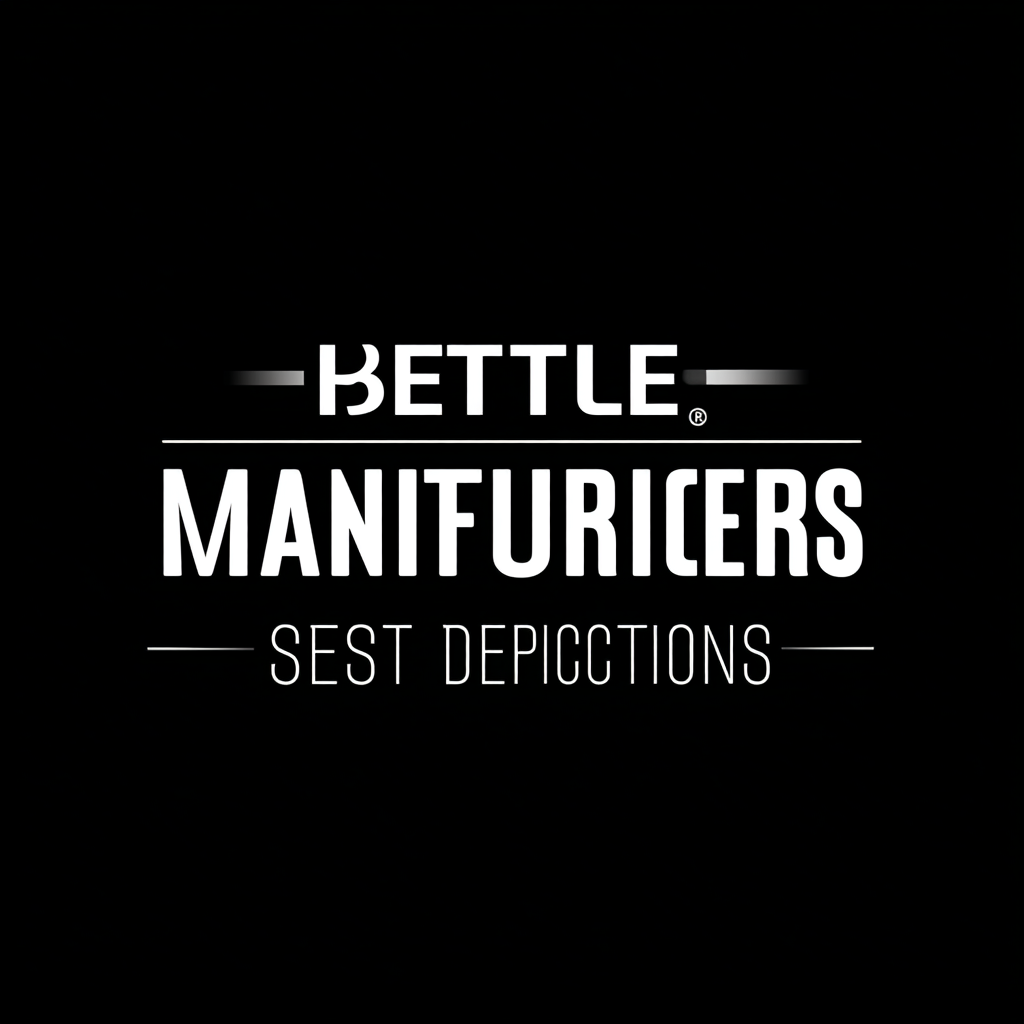Ultimate Guide to Best Manufacturers Unveiling 15 Essential Technical Specifications
In today's highly competitive industrial landscape, selecting the right manufacturers is crucial for ensuring quality and efficiency in production. According to a recent report by Deloitte, 79% of executives believe that effective supply chain management is key to maintaining a competitive edge, emphasizing the importance of choosing reliable manufacturing partners. Furthermore, the global manufacturing sector is projected to reach $2 trillion by 2028, highlighting the growing demand for top-notch manufacturers and their essential technical specifications. This guide aims to unveil 15 critical factors to consider when selecting the best manufacturers, enabling businesses to make informed decisions that can significantly impact their operational success and product reliability. Understanding these specifications not only streamlines procurement but also enhances the overall value chain, ensuring that businesses remain competitive in an ever-evolving market.

Benefits of Understanding Key Technical Specifications in Manufacturing
Understanding key technical specifications in manufacturing is crucial for optimizing productivity and ensuring product quality. Data-driven decision-making (DDDM) has emerged as a transformative approach, with studies showing that organizations using DDDM can increase their productivity by up to 5-6%. This data-centric perspective allows manufacturers to leverage extensive data analysis, improving not only operational efficiency but also the innovation of products and processes.
Incorporating advanced technologies like digital twins can further augment this understanding. A digital twin creates a virtual representation of physical objects, allowing manufacturers to simulate and analyze their performance before making critical production decisions. This technology can reduce costs by up to 30% by enabling predictive maintenance and enhancing product design.
Tip 1: Always ensure your team is knowledgeable about current technical specifications to facilitate informed decision-making at all levels.
Tip 2: Invest in training for your workforce to better understand data analytics and how to apply it in real-world scenarios, fostering a culture of data literacy.
Embracing these approaches and technologies not only heightens efficiency but also helps manufacturers meet evolving market demands.
Impact of Quality Control Standards on Manufacturer Reliability
When evaluating the reliability of manufacturers, one of the most critical factors is the impact of quality control standards. These standards serve as benchmarks that define the expectations for production processes, materials used, and finished product performance. A manufacturer that adheres to rigorous quality control protocols not only minimizes the risk of defects but also enhances its reputation in the industry. Companies that apply international standards, such as ISO 9001, demonstrate a commitment to quality that can significantly influence customer trust and loyalty.
Moreover, effective quality control practices can streamline operations and reduce waste, leading to cost savings that can be redirected into improving product offerings. Manufacturers investing in comprehensive training for their employees on quality assurance processes are better equipped to identify potential issues early in production. This proactive approach ensures that the final product meets or exceeds customer expectations, solidifying the manufacturer's position as a trusted partner in the supply chain. Ultimately, the integration of robust quality control standards is essential for manufacturers looking to build a reliable reputation in a competitive market.
Ultimate Guide to Best Manufacturers Unveiling 15 Essential Technical Specifications - Impact of Quality Control Standards on Manufacturer Reliability
| Technical Specification | Description | Quality Control Standard | Impact on Reliability |
|---|---|---|---|
| Material Quality | High-grade materials ensure durability and performance. | ISO 9001 | Increased product lifespan and reduced failure rates. |
| Production Processes | Efficient processes minimize waste and errors. | Six Sigma | Higher consistency in product quality. |
| Supplier Reliability | Trustworthy suppliers reduce risk of defects. | Supplier Audits | Improved consistency in part quality. |
| Testing Protocols | Rigorous testing ensures product meets specifications. | ASTM Standards | Fewer recalls and warranty claims. |
| Design Specifications | Innovative designs enhance user experience. | Design for Manufacturing (DFM) | Higher efficiency in production and assembly. |
| Environmental Standards | Sustainability processes reduce ecological impact. | ISO 14001 | Positive brand reputation and customer loyalty. |
| Documentation Standards | Clear documentation aids quality assurance. | ISO 9001 | Enhanced traceability and accountability. |
| Employee Training | Skilled workers produce better products. | Continuous Improvement Programs | Increased efficiency and reduced errors. |
| Maintenance Procedures | Regular maintenance prevents equipment failure. | Predictive Maintenance Standards | Reduced downtime and cost savings. |
| Customer Feedback | Real user insight leads to product improvements. | Feedback Loops | Enhanced customer satisfaction and brand loyalty. |
| Supply Chain Transparency | Transparent supply chains reduce risks. | Supply Chain Management Practices | Improved risk management and integrity. |
| Compliance Audits | Regular audits ensure adherence to standards. | Regulatory Compliance Frameworks | Reduced risk of non-compliance penalties. |
Advantages of Selecting Manufacturers with Robust Technical Support
When selecting a manufacturer, the importance of robust technical support cannot be overstated. A report by the Industrial Manufacturing Association indicates that companies with strong technical support average 30% fewer equipment downtime incidents compared to those with minimal support structures. This difference not only influences operational efficiency but also impacts the bottom line, as every hour of downtime can cost manufacturers thousands in lost productivity. Moreover, manufacturers that provide proactive support can resolve issues before they affect production, a significant advantage in today’s competitive landscape.
Tip: Always inquire about a manufacturer’s technical support capabilities during the selection process. This can include understanding their response times, availability of 24/7 support, and the expertise of their support staff.
Furthermore, manufacturers with comprehensive technical support often have longer relationships with their clients. A survey conducted by TechSupport Insights revealed that 78% of businesses are likely to renew contracts with manufacturers who offer excellent support services. This relational aspect not only fosters a collaborative environment but also enhances innovation through shared knowledge and resources.
Tip: Look for manufacturers who offer training and educational resources as part of their support services. This investment in client knowledge can empower your team and improve overall operational effectiveness.

How Advanced Technical Features Enhance Product Performance
In today's competitive landscape, advanced technical features have become paramount in enhancing product performance across various industries. The integration of a modern technology stack allows companies to leverage the power of AI, automation, and data analytics. These technologies not only improve research and development productivity but also enable organizations to make data-driven decisions that lead to more efficient operations and better product outcomes.
One notable example is the collaboration between leading companies in the healthcare sector to develop autonomous imaging technologies. This innovative approach is set to transform diagnostic processes, providing faster and more accurate results. Similarly, advancements in hybrid systems in the automotive industry highlight how cutting-edge technologies can significantly improve vehicle efficiency and performance. As companies continue to invest in tailored tech solutions, we can expect a ripple effect, where enhanced technical specifications lead to superior products that meet the evolving demands of consumers.
Evaluating Cost Efficiency through Informed Technical Specification Choices
When evaluating cost efficiency in manufacturing, informed decisions on technical specifications are paramount. According to a recent report by Industry Week, companies that prioritize the selection of appropriate materials and design specifications can reduce production costs by up to 20%. This is largely due to the increased efficiency gained by using high-quality components, which can minimize waste and reduce the need for costly reworks. Properly assessing specifications allows manufacturers to align their operational capabilities with market demands, ultimately maximizing profit margins.

Furthermore, a study conducted by the Association for Manufacturing Excellence highlighted that organizations utilizing data-driven approaches to technical specifications experience a significant increase in productivity—up to 30% in some industries. By systematically evaluating the specifications that affect cost efficiency, businesses can implement strategies that not only lower expenses but also enhance overall product performance. Investing time in understanding these critical elements can lead to smarter manufacturing processes, fostering long-term sustainability and competitiveness in the industry.
